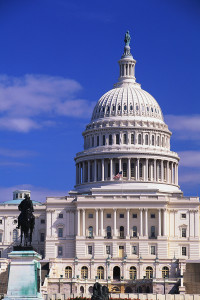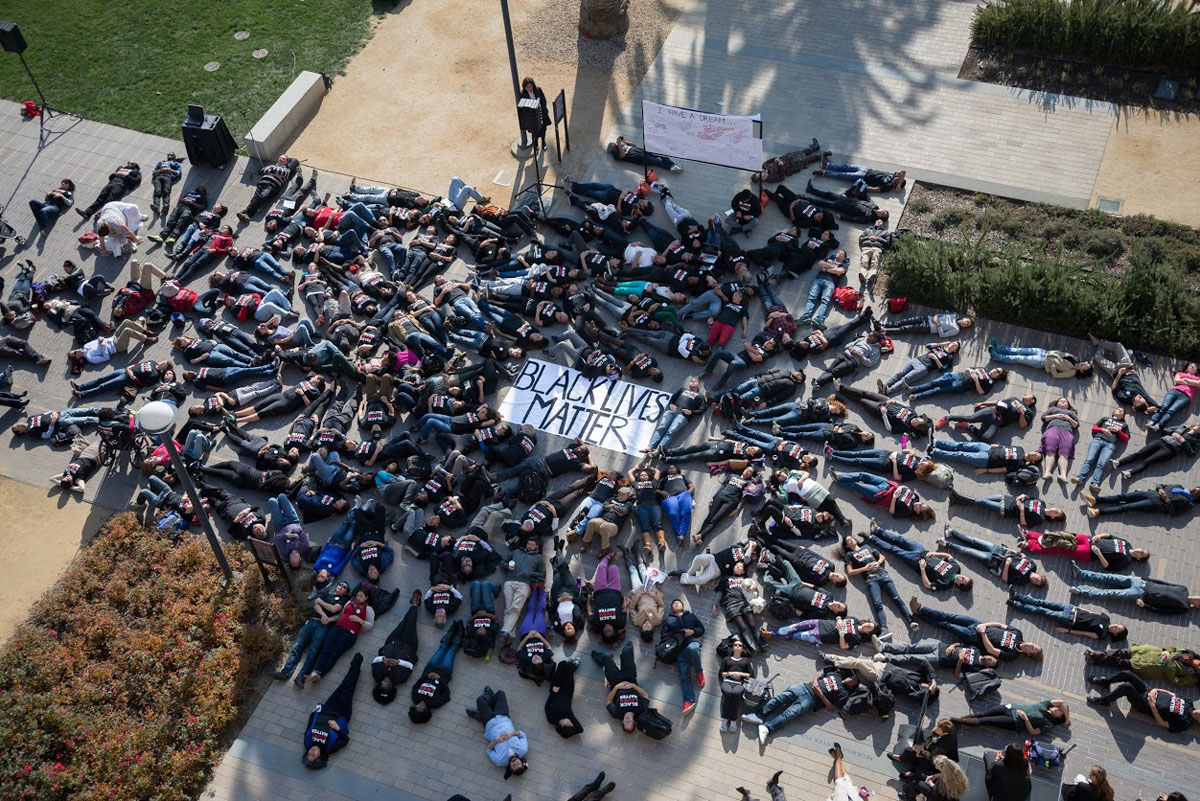
U.S. Capitol, Washington, DC, USA
This past month, I experienced the thrill of “hitting the hill” and advocating for psychologists, graduate students, patients, and community members around the country amidst the hustle and bustle of our nation’s capitol. It was legislative advocacy day, the finale to end my time attending the American Psychological Association State Leadership Conference (SLC) in Washington DC. I had just spent the last four days engaging in training with leaders in diversity, early career issues, social reform, legislation reform, and much more as I participated in passionate conversations with psychologists and graduate students from throughout the nation who shared a single vision—advocacy.
As I stood with clinical psychologists from across Oregon, I felt a sense of power, ownership, and support as we walked to meet several local legislators who wanted to hear about the state of mental health in our nation. While speaking to representatives and their staff, it was an amazing—and nerve racking—experience to share the stories of my patients who are struggling to access quality mental health care. So many times as a student, I have found myself becoming frustrated and discouraged when I met with patients who were experiencing a mental health crisis but who were forced to wait for care in emergency departments, friend’s homes, or on the streets. When I was standing amidst other students and psychologists who cared about people who were suffering and who were advocating for them, it filled me with a sense of hope.
This sense of optimism stemmed from so many individual experiences I had with other people attending the State Leadership Conference. One specific experience took place the night I landed in Washington DC. I was meeting several APAGS Advocacy Coordinating Team members (all happened to be women) for the first time at a local restaurant for dinner. As we sat together learning each other’s stories, I was struck by the amazing work that each woman was doing in her community. Additionally, I found myself genuinely interested in not only the professional accomplishments of each individual at the table, but also in her personal reasons for getting involved in advocacy and leadership with APAGS. It was comforting and encouraging seeing the faces of women representing various regions from across the country who cared about the same issues that I did.
I am incredibly grateful for the experience I had at SLC this year—for the connection, the support, and the engagement. From meeting with lawmakers who were honestly interested in hearing about the mental health crisis in our country, to engaging with fellow graduate students who had the tenacity to take on national issues, I have been energized by these interactions. I hope to take this same energy with me as I continue graduate school and grow as a future clinician; I hope one day to come back to SLC as a psychologist who is involved in meaningful change.
With hope,
~Roseann
[Editor’s Note: Roseann Fish Getchell is a clinical psychology student at George Fox University and a Northwest Regional Advocacy Coordinator for APAGS-ACT.]



 Transparency in government—in ensuring accountability, reducing barriers for involvement, and building institutional confidence—is perhaps one of the greatest assets a representative body can provide to its constituents. It can help ensure the dissemination of information, the empowerment of individuals to partake in their governing, and promote societal progress.
Transparency in government—in ensuring accountability, reducing barriers for involvement, and building institutional confidence—is perhaps one of the greatest assets a representative body can provide to its constituents. It can help ensure the dissemination of information, the empowerment of individuals to partake in their governing, and promote societal progress. It is indeed up to both our organization and to us, as members, to participate actively to promote institutional change. I strongly encourage you to peruse the documents listed on the page as a first step. If, in reading these sources, you’d like to get more involved in APAGS to ensure its success at all levels, please consider running for an
It is indeed up to both our organization and to us, as members, to participate actively to promote institutional change. I strongly encourage you to peruse the documents listed on the page as a first step. If, in reading these sources, you’d like to get more involved in APAGS to ensure its success at all levels, please consider running for an 

 Recently, I had been trying to come up with creative ways to help my students link concepts from class to the real world. Improving learning is one connection. But there are many others, such as how we might frame an advertisement to help it sell, or how we can improve procedures in the criminal justice system to avoid false convictions – like Steven Avery’s first conviction. (The many who watched Making a Murderer have probably thought a lot about this connection to cognitive psychology, possibly without realizing how much of a role it plays!) Anyway, I decided to create an assignment requiring my students to interact with one another and make connections with popular psychology-related articles on Twitter. The first step was creating a Twitter profile for myself, and building it up with psychology-related tweets.
Recently, I had been trying to come up with creative ways to help my students link concepts from class to the real world. Improving learning is one connection. But there are many others, such as how we might frame an advertisement to help it sell, or how we can improve procedures in the criminal justice system to avoid false convictions – like Steven Avery’s first conviction. (The many who watched Making a Murderer have probably thought a lot about this connection to cognitive psychology, possibly without realizing how much of a role it plays!) Anyway, I decided to create an assignment requiring my students to interact with one another and make connections with popular psychology-related articles on Twitter. The first step was creating a Twitter profile for myself, and building it up with psychology-related tweets. About the authors:
About the authors:
 Yana Weinstein is an Assistant Professor in the Psychology department at the University of Massachusetts Lowell. She received her PhD in Psychology from University College London and had 4 years of postdoctoral training at Washington University in St. Louis. The broad goal of her research is to help students make the most of their academic experience.
Yana Weinstein is an Assistant Professor in the Psychology department at the University of Massachusetts Lowell. She received her PhD in Psychology from University College London and had 4 years of postdoctoral training at Washington University in St. Louis. The broad goal of her research is to help students make the most of their academic experience.